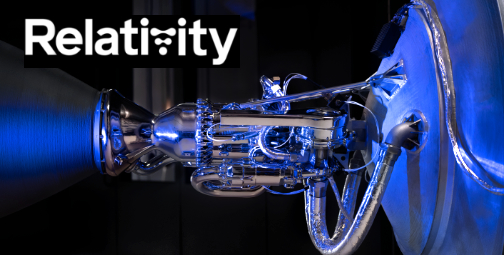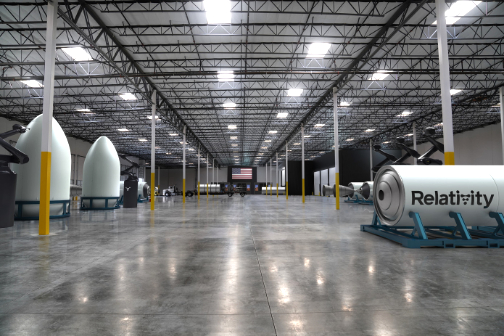
Relativity Space has secured a new headquarters in Long Beach, California — this 120,000 sq. ft. space will house both the company’s business operations and a manufacturing facility.
Relativity integrates machine learning, software, and robotics with metal additive manufacturing technology and will produce Terran 1, the world’s first 3D printed rocket, at the Long Beach facility.
Relativity has already begun migrating staff to the new headquarters and is transitioning its patented additive manufacturing infrastructure as it builds out the first-ever, autonomous, rocket factory. The factory will house all production for Terran 1, the Aeon engine assembly, as well as integrated software, avionics and materials development labs.

Relativity Space's new factory area in Long Beach, California.
The new facility enables production of the entire Terran 1 rocket, including an enlarged fairing, now accommodating double the payload volume. The combination of agile manufacturing and payload capacity makes Relativity the most competitive launch provider in its class, meeting the growing demands of the expanding satellite market.
The new headquarters and factory mark another milestone in Relativity’s steady execution toward the firm's first launch. Relativity recently closed a $140 million funding round led by Bond and Tribe Capital and has already secured a launch site Right of Entry at Cape Canaveral Launch Complex-16, an exclusive-use Commercial Space Launch Act (CSLA) agreement for NASA test sites, including E4 at the NASA Stennis Space Center as well as a 20-year exclusive use lease for a 220,000 square feet factory, also at the NASA Stennis Space Center. The Long Beach facility was constructed and is managed by Pacific Industrial.
Tim Ellis, CEO and co-founder of Relativity Space, said the company is disrupting nearly 60 years of prior aerospace technology by building a new manufacturing platform using robotics, 3D printing and AI. With no fixed tooling, Relativity has enabled a massive part count and risk reduction, increased iteration speed and created an entirely new value chain. This autonomous factory will become the future technology stack for the entire aerospace industry.

